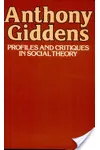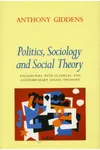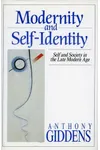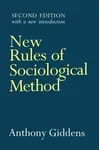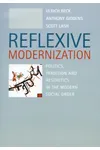Picture a British sociologist who reshaped how we understand society’s intricate dance—meet Anthony Giddens! Born in 1938, Giddens is a intellectual giant whose theory of structuration and sharp insights into modernity have made him a cornerstone of contemporary sociology. With over thirty books, his work weaves a captivating narrative of how individuals and structures shape our world.
From capitalism to globalization, Giddens’s holistic approach invites us to see society as a dynamic interplay of human agency and social systems. Ready to dive into the mind of a thinker who made sociology sing? Let’s explore his journey!
The Making of Anthony Giddens
Anthony Giddens was born on January 18, 1938, in Edmonton, North London, to a working-class family. His early life sparked a curiosity about social dynamics, leading him to study sociology and psychology at the University of Hull. He later earned a master’s at the London School of Economics and a PhD at Cambridge. Teaching at Leicester University, Giddens began crafting ideas that would challenge traditional sociology, blending individual actions with societal structures.
His academic rise was meteoric, fueled by a knack for connecting abstract theory with real-world issues. By the 1970s, Giddens was a leading voice, co-founding Polity Press to amplify new sociological ideas. His global perspective and engaging lectures drew students and scholars alike, setting the stage for his groundbreaking works.
Anthony Giddens’s Unforgettable Theories
Giddens’s signature contribution is his structuration theory, introduced in The Constitution of Society (1984). This work argues that social structures and human actions are intertwined, each shaping the other in a continuous loop. Unlike rigid frameworks, Giddens saw society as a living, evolving system, making his theory a game-changer for sociologists studying everything from politics to personal identity.
His book Modernity and Self-Identity (1991) explores how modern life—think fast-paced cities and global connectivity—shapes our sense of self. Giddens’s clear, accessible prose makes complex ideas relatable, earning him fans beyond academia. The Consequences of Modernity (1990) tackles globalization, warning of its risks while celebrating its possibilities. Finally, Sociology (1989), a widely used textbook, distills his insights for students, cementing his role as an educator.
Giddens’s style is both rigorous and approachable, blending theory with real-world examples. His focus on modernity, globalization, and individual agency resonates in an era of rapid change, making his work timeless yet urgently relevant.
Why Anthony Giddens Matters
Giddens’s impact on sociology is profound, offering a lens to understand our interconnected world. His structuration theory has influenced fields from political science to anthropology, inspiring scholars to rethink how societies function. As a public intellectual, Giddens advised governments, including Tony Blair’s New Labour, on navigating modern challenges like inequality and climate change.
His legacy lies in empowering us to see ourselves as active players in society’s story. By bridging theory and practice, Giddens made sociology not just a discipline but a tool for change. His ideas continue to spark debates and guide research, ensuring his voice echoes in classrooms and beyond.
About Anthony Giddens
- Born: January 18, 1938, in Edmonton, London
- Key Works: The Constitution of Society, Modernity and Self-Identity, The Consequences of Modernity
- Notable Role: Director of the London School of Economics (1997–2003)
- Fun Fact: Giddens was made a life peer as Baron Giddens in 2004
Snag The Constitution of Society and dive into Anthony Giddens’s brilliant take on the world we shape—and that shapes us!


